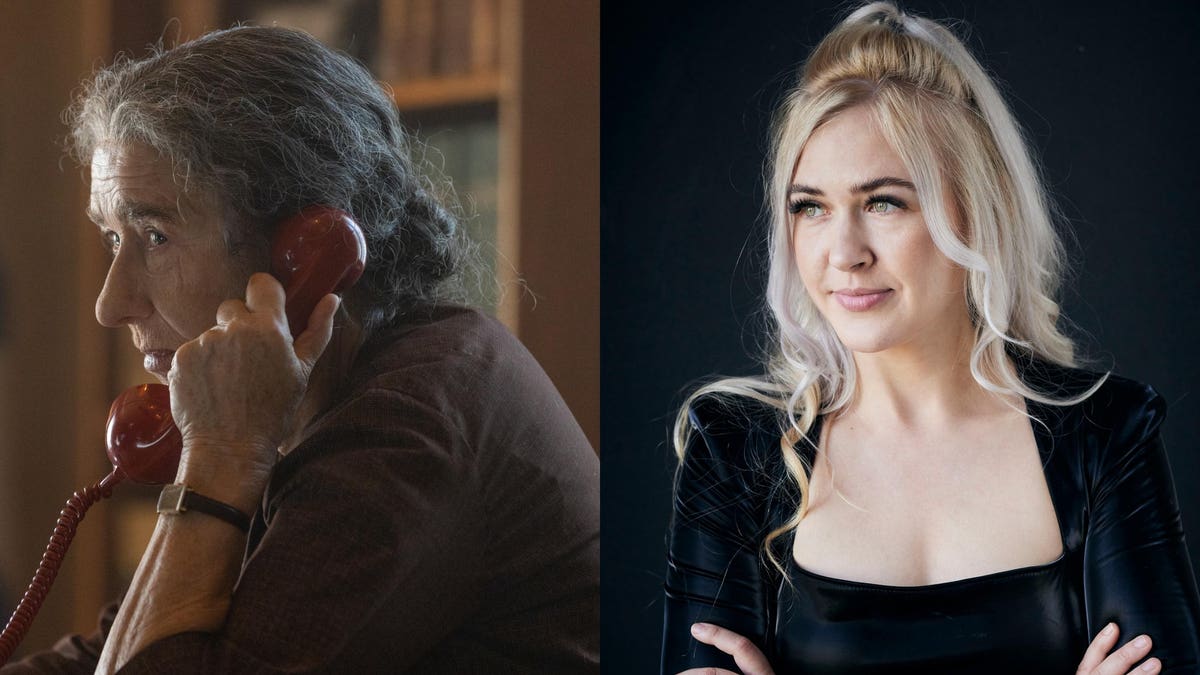It’s not very often an Oscar-winning filmmaker slides into your Instagram DMs. But that’s exactly what happened when Guy Nattiv (Mabul, Skin) asked Dascha Dauenhauer to score his biopic of former Israeli prime minister, Golda Meir.
Naturally, the Berlin-based composer was skeptical of the unexpected notification. “I was like, ‘Okay, there’s a message. Is it something serious or not?’” she recalls over a Zoom conversation. But once they had a chance to speak, Dauenhauer learned of how the director would play sections of her Evolution score for Helen Mirren while on the set of Golda (now playing in theaters). “He really liked the mood and the taste and the signature of my music,” she says. “So then we just decided to work together.”
Their collaboration proved to be a significant career milestone for Dauenhauer, who states that the “challenging” work on Golda helped her grow as an artist. “This is music that is really coming from my soul. I really can say this is Dascha.”
Written by Nicholas Martin (Florence Foster Jenkins), the film explores the tough decisions Meir was forced to make during the Yom Kippur War, the 1973 conflict that erupted when Egypt and Syria suddenly attacked Israel on one of the holiest days of the Jewish calendar.
Israel emerged victorious after nearly three weeks of combat, but the resultant death toll prompted the formation of the Agranat Commission, whose purpose was to determine whether Meir had failed to mitigate the conflict (and indeed, she was forced to resign her post not long after the Commission published its findings).
Despite the fact that Golda is technically a war movie, it is less preoccupied with the actual fighting and more concerned with the onerous political and tactical maneuvering, the proverbial minefield of geopolitics, world leaders must navigate behind-the-scenes.
“It’s a very personal biopic,” Dauenhauer continues. “We are very close on Golda. I thought it was very important to depict her as a very multi-layered, complex person — a woman in this complex and very difficult situation.”
Striving for a “purely acoustic score,” the composer sought out “uncommon, unusual” sounds, including a detuned cowbell. Each facet of the soundtrack, she explains, needed to reflect the prime minister’s “vulnerability” and “fears” — not only with regards to the war, but also her secret battle with lymphoma (a symbolic encapsulation of Israel’s larger struggle for survival).
For the character’s main theme — which took between two and three months to get right — Dauenhauer settled on a “really weird” mixture of orchestral and solo strings; percussion instruments; and that detuned cowbell mentioned above to emphasize that “something is wrong … it had to convey a very apocalyptic feeling.”
She later continues: “It was very special to be free to work with more complicated chords are harmonies, because I could really bring dissonance into the composition. In film music, you mostly have to deal with very simple pop chords. And here, it was really interesting for me, because the composition could be very dense.”
To offset the dourness of the main theme, Dauenhauer wrote an almost playful, “tango-ish” cue for Meir’s brief interaction with Richard Nixon’s Secretary of State, Henry Kissinger (Liev Schreiber), over a bowl of borsht. “I wanted to create a dance for the relationship between Golda and Kissinger because it’s like a political dance,” she notes. “It’s ironic, but it’s also very serious.”
The Yom Kippur War drew in tacit support on both sides from the United States and Soviet Union, effectively becoming another bullet point on the list of proxy conflicts waged between the Cold War combatants throughout the second half of the 20th century. America’s support of Israel, however, came at a high cost: the 1973 oil embargo.
While Meir was originally from Eastern Europe, the composer did not feel it was necessary to nod to the prime minister’s geographical roots with shades of klezmer.
“I always want to write very universal music,” Dauenhauer insists. “Of course, she’s Israeli and it’s very obvious, so I thought it’s not necessarily to tell the same with the music. I wanted to really keep the music universal and just tell a story about this very strong and complex woman.”
The shining achievement of the entire score, she concludes, is that the music doesn’t merely support the picture. “We really decided to add a layer. The music is like its own protagonist. This is really interesting for me as an artist to add layers and not just to support what you see in the picture, anyway.”
Golda is now playing in theaters nationwide. Click here for tickets.
Read the full article here





